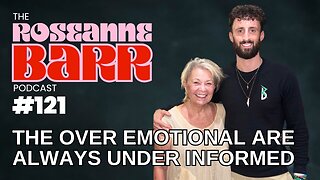Premium Only Content

The Trinity in Question: A Reflection on Faith and Belief in Modern America
#FaithInFocus #ModernBeliefs #TrinityDebate #ChristianityToday #FaithAndCulture #SpiritualJourney #TheologyMatters #BeliefInQuestion #FaithRedefined #ReligiousIdentity
Hi everyone and welcome to who threw the curve?
Today we are going to speak on The Trinity in Question: A Reflection on Faith and Belief in Modern America
The concept of the Trinity—God as Father, Son, and Holy Spirit—is a cornerstone of Christian theology, yet a recent study reveals that most Americans, including self-identified Christians, reject this doctrine. Conducted by the Cultural Research Center at Arizona Christian University, the study highlights a growing disconnect between Christian identity and theological understanding. While two-thirds of Americans claim to be Christian, only 11% of adults and 16% of self-proclaimed Christians affirm the Trinity. This startling revelation raises questions about the role of religious education, cultural influences, and personal spirituality in shaping beliefs.
One of the key findings of the study is the limited acceptance of the Trinity among Americans. Only 40% believe in the God of the Bible, 59% in Jesus Christ, and 29% in the Holy Spirit. These figures suggest that even among churchgoers, the foundational truth of the Trinity is misunderstood or rejected. The implications are profound, as the Trinity is not merely a theological concept but a lens through which Christians understand the nature of God and their relationship with Him. The study's director, Dr. George Barna, expressed concern about the cultural drift away from biblical beliefs, noting that Americans are redefining God in their own image.
The rejection of the Trinity may also reflect broader societal trends. In an era dominated by individualism and skepticism, many Americans prioritize personal spirituality over institutional doctrines. Figures like Tucker Carlson, Joe Rogan, and Jordan Peterson have become influential voices, blending practical theology with philosophical commentary. This shift challenges traditional religious institutions to engage with contemporary audiences in meaningful ways. Churches must address the gap between Christian identity and theological understanding, fostering a deeper connection to biblical teachings.
Education plays a crucial role in bridging this gap. The study underscores the need for apologetics and theological literacy among Christians. Many Americans lack basic biblical knowledge, from the Ten Commandments to the Trinity. This ignorance not only weakens individual faith but also undermines the collective strength of Christian communities. By investing in education and outreach, churches can empower believers to embrace and act upon their faith, transforming abstract doctrines into lived experiences.
In conclusion, the rejection of the Trinity among most Americans, including Christians, is a wake-up call for religious institutions and individuals alike. It challenges us to reflect on the evolving nature of faith in a diverse and dynamic society. As churches strive to reconnect with their congregations, they must balance tradition with innovation, ensuring that the timeless truths of Christianity resonate in the hearts and minds of believers. The Trinity, as a symbol of unity and love, remains a powerful reminder of the divine mystery that calls us to deeper understanding and faith.
Thank you for listening to who threw the curve?
Don't forget to share, like, and subscribe, thanks
-
 2:34:30
2:34:30
Red Pill News
4 hours agoBoomerang Time - DOJ Investigating BLM Fraud on Red Pill News Live
14.7K8 -
 1:46:14
1:46:14
Roseanne Barr
5 hours ago“The Over Emotional Are Always Under Informed” | The Roseanne Barr Podcast #121
62.9K36 -

Nerdrotic
6 hours ago $7.51 earnedThe WitcHER DOA | Box Office Massacre | Massive Industry Layoffs - Friday Night Tights 378
27.2K5 -
 14:54
14:54
IsaacButterfield
14 hours ago $2.14 earnedShe Called Out “Creepy Men It Didn’t End Well
12.8K40 -
 11:43:21
11:43:21
LFA TV
22 hours agoLIVE & BREAKING NEWS! | FRIDAY 10/31/25
187K46 -
 1:08:42
1:08:42
vivafrei
4 hours agoEric Swalwell in Trouble Again? RFK Jr. "Reverses Course" on Tylenol & Autism? Arctic Frost & MORE!
76K35 -
 1:19:51
1:19:51
DeVory Darkins
6 hours agoNewsom EXPOSED after latest bombshell and Democrats pulls shocking stunt regarding shutdown
79.2K37 -
 25:29
25:29
Stephen Gardner
5 hours ago💣 Trump White House UNEXPECTED Move + Thune DESTROYS Schumer on Senate Floor!!
32.8K31 -
 3:31:15
3:31:15
Drew Hernandez
16 hours agoSPOOKY WOKE HAG CALLS FOR DEMS TO EMBRACE CELEBRATING EXECUTION OF CHARLIE KIRK?!
19.1K14 -
![MAHA News [10.31] - HHS Coup, Big Food Documentary, SNAP Scams, Microplastic Solutions](https://1a-1791.com/video/fwe2/d9/s8/1/w/q/m/v/wqmvz.0kob-small-MAHA-News-10.31.jpg) 1:28:13
1:28:13
Badlands Media
18 hours agoMAHA News [10.31] - HHS Coup, Big Food Documentary, SNAP Scams, Microplastic Solutions
26.3K10